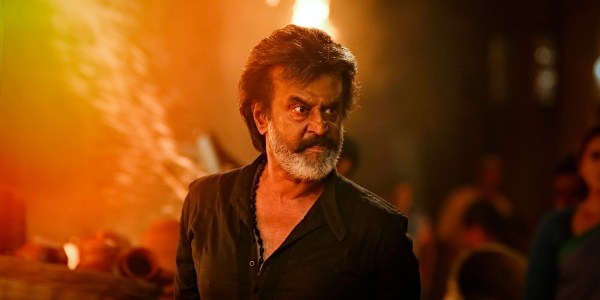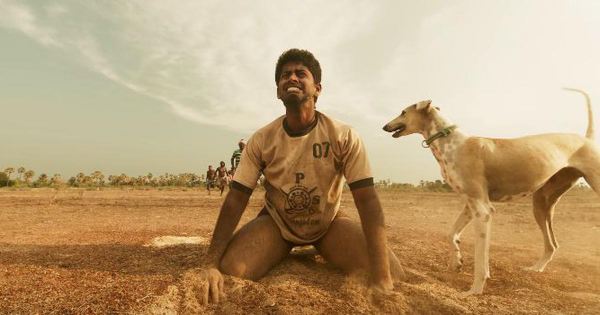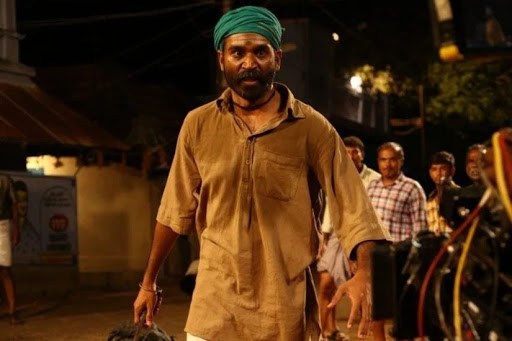Kaala to Asuran: How Tamil movie industry has played an imperative role in being vocal about Dalit rights
Tamil movie industry has been the lone player in Indian cinema which has brought the endangered ideas of inferior section to engage among audiences. Kollywood, which has been vociferous from the very beginning about Dravidian politics has shown its caliber and mellow on the caste representation with the arrival of genius filmmakers.

Indian films have come a long way since independence from screening in bio scopes to selling the highest number of movie tickets in the world. In the early 80s when it amused the audience with the heart-thumping action scenes of hero and villain, it gradually resorted to romantic melodramas in the 90s. By the time when the production of movies increased twofold in the 2000s, it had suppressed the idea of Dalit voices and narrations in movies. The sudden splurge of jingoism in Bollywood movies had sunk the requisite need of society to produce movies on Dalits which will be vocal about their right and politics. With the rise of talented filmmakers like P.A Ranjith the trend of beautification of ugliness had taken its stand. As the certain conflicts between stars and filmmakers still, pause to create trouble in film-making but with such gritty movies, the hope has been strengthened.
The new-age- dramas have reshaped their texture with the portrayal of strong assertive characters who are intolerant to inequality. Be it Asuran Sivasamy, Kaala's Kaarikalan, or Pariyerum Perumal pari if something is mutual between these movies is the Protagonist’s struggle to fight against oppression and achieve equality. This might be the filmmaker's experiences or empathy to the subject but with such exposure, it had altered the landscape by being the community's voice.
P.A Ranjith's Violence in Kaala

In the Kaala at the beginning sequence, Kaarikalan ( Rajnikanth) says while obstructing a slum demolition program, " Don't explain the law to us!! We know how to respect the system, but in case if it will oppress us then we know how to fight back". This enunciates the protagonist's harmony to destroy the oppression as well as to revere its highest regard. Kaala does beautification of the ugly word in more than any recent movies. The audaciousness and dignity shown by cinematographer Murali G and PA Ranjith are inexplicable in every word. The under-treatment of the protagonist and his mundane mien never stands tall with Hari bhai’s fancy sartorial. Whether it be Kaarikalan’s black dhoti to Hari bhai’s white clothes, there is a class distinction to their accompaniments which makes them closer to reality. Ranjith’s portrayal of Kaarikalan is assertive who takes pride in his dirt and the protection of his people. This political drama trammeled the typecast in close proximity by depicting the reality which was rarely seen in Tamil industry.
Maari Selvaraj's appalling innocence in Pariyerum Perumal

Maari Selvaraj's Pariyerum Perumal does an exact opposite with its protagonist with what Kaala does. Although made from the same generic of P.A Ranjith, it never shies away from reality and pragmatism. Among the varied layers what will immerse the audience more in this movie is the innocence and loyalty with how the characters are treated. The movie follows Pariyerum a youth from a lower caste in Tirunevelli who joins a law college to become a lawyer like Dr. Ambedkar but in the meantime, he falls in love with a girl from the upper caste. This movie could be called a spectacular achievement where the protagonist's tactile silence is crafted with an extraordinary writing from Selvaraj. Pariyerum’s character that goes through unbearable suppression speaks about the reality of every Dalit student in our society. There is a splendid moment in the movie where Pariyerum is invited by his love interest to her sister's wedding but what follows later after he reaches the venue is completely disparate from regular Tamil movies. There is a linear movement of helplessness and humiliation in the protagonist that connotes the age-long oppression of upper castes. However if similarities will be drawn with P.A Ranjith, there seems to be a steep of aggression in Selvaraj's Pariyerum Perumal as he had withered his innocence in constant struggle.
Vetrimaaran's empowered vengeance in Asuran

Vetrimaaran’s Asuran is a cult classic that shows when stars like Dhanush do such movies there is a dawn of such under preferred subjects in the cinema industry. Asuran is a story of ages of vengeance within Sivasamy. Sivasamy who used to work for a local alcohol brewer and landlord, one day murders everyone who had killed the member of his lover's family. In a bid to escape it they flee and start a new life. However, tensions never seem to take a rest, when their life seems to be going perfectly his younger son murders the village head, Narasimhan ( who is from an upper caste) who was responsible for killing sivasamy’s elder son. It later follows to the run of sivasamy and Chidambaram to save themselves and produce before court. The remarkable narration that has been done by vetrimaaran is the inheritance of avenge which has been passed from generation. Sivasamy’s character is built on a one-note vehemence to retaliate against the injustice done to his family. In times when the characterization of protagonists has been made deliberately to impress audiences, Asuran stays deviant from it. The tale of age-long encroachment of land, food, men, air by upper-caste men to Dalits from the vision of a 50-year-old man is the reality of suppression of thousands of Dalits. Since the beginning, the vengeance by the protagonist is portrayed as a result of inexplicable suppression. Asuran is based on Poomani’s novel Vekkai “Heat” is an entailment of belligerence of a man who resorted to violence to save his family.
Struggles and pressures of filmmakers

As with the filmmaker PA Ranjith, who revers to Dr. Ambedkar’s principles as the important element of his movie says narration should come from experiences, not from examples. Ranjith explains that in the growing years his independence as a filmmaker has been curtailed substantially with a singular notion that I make movies such as Kaala. He hopes the industry and audience must understand the reality of marginal people and why their stories need to be told.
Ranjith and other filmmakers who had come a long way battling oppression and injustice of every kind have made an arena for themselves where could fence. The shortness of the society gets stumped when filmmakers from such constrained spaces make way for them in society. Whether it be Neeraj Ghwayan from Bollywood or Ranjith from Kollywood there is a definite need of augmentation to such filmmakers for cinema to prosper.
Popular Videos
-
WATCHEDCheck out the official trailer . #trailerInsane Like Me?
-
WATCHEDA music journalist accompanies her father, a charmingly stubborn Holocaust survivor, on a journey to his homeland. While she's eager to make sense of her family's past, her dad has an agenda of his own. The official trailer is out for Treasure . #trailerTreasure
-
WATCHEDFollows the story of the loyal women of an organized crime family that dominated some of the boroughs of New York City in the late 20th century. Watch the official trailer . #trailerFresh Kills











